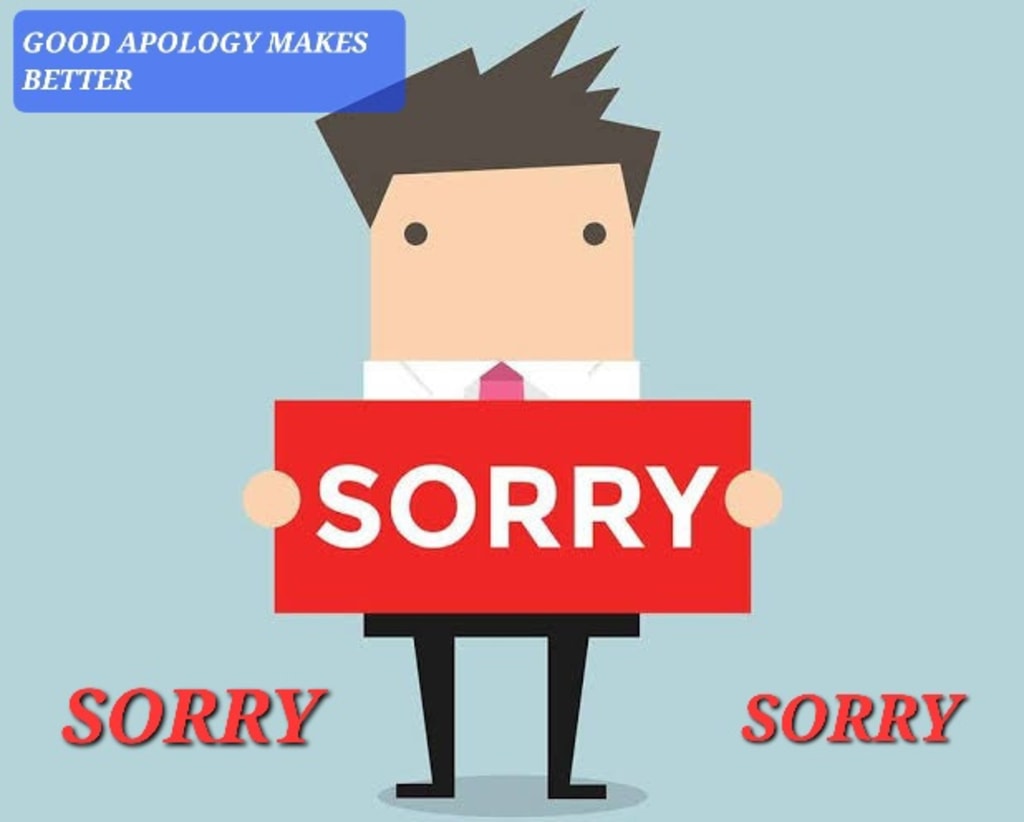
Throughout the long term, individuals have concocted a few really horrendous statements of regret. From exemplary non-conciliatory sentiments to equivocal reasons, and feeble corporate commitments, giving a terrible apology is very much simple. Yet, specialists have found that great statements of regret for the most part share specific components and mindfully taking into account these variables can assist you with setting things right in a wide assortment of circumstances.
Since general acknowledgments have their own remarkable intricacies, we will zero in on a one individual to another models. Thus, picture this: your new office has free frozen yogurt sandwiches in the public ice chest or if nothing else you suspected as much. However, on Friday, while you're assisting your collaborator Terence with setting up another associate's birthday celebration, he finds that a portion of the frozen yogurt he purchased for the festival is no more. While this is clearly a humiliating mishap, approaching and saying 'sorry' is as yet the correct thing to do. Understanding and tolerating liability regarding your activities is what a few specialists call the "focal point of a statement of regret." Yet it's OK if this feels troublesome and helpless it should be! The expensive idea of statements of regret is important for what makes them significant. So while you may be enticed to guard your activities as incidental, it's memorable's critical that a decent expression of remorse isn't tied in with cheering you up. It's tied in with looking to grasp the viewpoint of the violated party and fix the harm to your relationship. This really intends that while explaining your goals non-protectively can be useful, your mix-up being a mishap shouldn't exonerate you from offering an earnest statement of regret. Be that as it may, imagine a scenario where your misstep wasn't a mishap.
Think about this: you guaranteed your companion Marie that you'll go to her title football match. Yet, one more companion just called to offer you an additional ticket for your #1 artist's goodbye visit. You realize this is a unique opportunity, and you can't miss it. Besides, you figure Marie wouldn't see any problems in the event that you miss the game she generally has a lot of fans supporting her. In any case, the following day, Marie lets you know she was truly harmed when she didn't see you in the group. You feel horrendous for disturbing her and truly need to apologize. However, while you lament harming Marie, you don't know whether you settled on some unacceptable decision. So how might you reach past that awful non-statement of regret, "Please accept my apologies YOU feel as such"? In circumstances like this, it tends to be not difficult to zero in on excusing your activities when you ought to be attempting to grasp the other individual's viewpoint. Consider asking Marie how you affected them to more readily figure out your offense. For this situation, Marie could make sense of that she was frustrated you broke your commitment, and she was truly relying on your help.
This sort of lucidity can assist you with perceiving your bad behavior and sincerely acknowledge how your activities hurt. Then you can approach your statement of regret around tending to her interests, maybe by conceding that it was off-base of you to break your commitment, and you're sorry you weren't there for her. Obviously recognizing bad behavior demonstrates that you know precisely the way in which you screwed up, and it can give Marie confidence that you'll act contrastingly pushing ahead. In any case, it's consistently useful to demonstrate precisely the way that you'll change and how you'll fix the harm brought about by your offense. Scientists consider this the "proposition of fix," and it's generally expected appraised as one of the most basic pieces of an expression of remorse. Now and again, these signals are clear, such as proposing to supplant the frozen yogurt you eat. In any case, with less substantial offenses, this could should be more representative, such as communicating your adoration and regard for somebody you violated. One normal proposal of fix is a verbal responsibility not to misstep the same way once more, but rather encouraging to improve possibly works in the event that you really improve.
Taking the casualty's viewpoint, tolerating liability, and making substantial proposals of fix are only a couple of the components of a decent expression of remorse. Be that as it may, recall, statements of regret aren't tied in with getting absolution and continuing on they're tied in with communicating regret and tolerating responsibility. Also the best conciliatory sentiments are only the initial step making a course for compromise.
About the Creator
Mhar
Hello






Comments
There are no comments for this story
Be the first to respond and start the conversation.